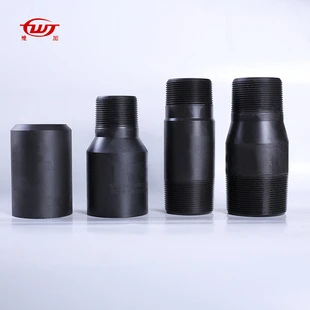- Afrikaans
- Albanian
- Amharic
- Arabic
- Armenian
- Azerbaijani
- Basque
- Belarusian
- Bengali
- Bosnian
- Bulgarian
- Catalan
- Cebuano
- Corsican
- Croatian
- Czech
- Danish
- Dutch
- English
- Esperanto
- Estonian
- Finnish
- French
- Frisian
- Galician
- Georgian
- German
- Greek
- Gujarati
- Haitian Creole
- hausa
- hawaiian
- Hebrew
- Hindi
- Miao
- Hungarian
- Icelandic
- igbo
- Indonesian
- irish
- Italian
- Japanese
- Javanese
- Kannada
- kazakh
- Khmer
- Rwandese
- Korean
- Kurdish
- Kyrgyz
- Lao
- Latin
- Latvian
- Lithuanian
- Luxembourgish
- Macedonian
- Malgashi
- Malay
- Malayalam
- Maltese
- Maori
- Marathi
- Mongolian
- Myanmar
- Nepali
- Norwegian
- Norwegian
- Occitan
- Pashto
- Persian
- Polish
- Portuguese
- Punjabi
- Romanian
- Russian
- Samoan
- Scottish Gaelic
- Serbian
- Sesotho
- Shona
- Sindhi
- Sinhala
- Slovak
- Slovenian
- Somali
- Spanish
- Sundanese
- Swahili
- Swedish
- Tagalog
- Tajik
- Tamil
- Tatar
- Telugu
- Thai
- Turkish
- Turkmen
- Ukrainian
- Urdu
- Uighur
- Uzbek
- Vietnamese
- Welsh
- Bantu
- Yiddish
- Yoruba
- Zulu
bull plug pipe fitting
Understanding Bull Plug Pipe Fittings Essential Components for Fluid Control Systems
In the world of plumbing, construction, and various industrial applications, the significance of pipe fittings cannot be overstated. Among the myriad of fittings available, the bull plug stands out as an essential component. This article delves into the characteristics, applications, and overall importance of bull plug pipe fittings in fluid control systems.
What is a Bull Plug?
A bull plug is a type of threaded fitting used to seal the end of a pipe or fitting, thereby preventing the flow of fluids in that section of piping. Unlike standard plugs, which may have a more conical configuration, a bull plug is typically characterized by a larger, rounded head that facilitates easier installation and removal. The design allows for a secure fit that can withstand high pressures, making it ideal for a variety of applications.
Bull plugs are usually made from materials such as brass, stainless steel, or plastic, depending on the intended use and the nature of the fluid being sealed. Stainless steel bull plugs are particularly preferred in applications involving corrosive substances, thanks to their durability and resistance to rust.
Applications of Bull Plugs
1. Hydraulic Systems Bull plugs play a critical role in hydraulic systems where the need to seal off pipes is prevalent. They help maintain pressure within hydraulic lines, ensuring the system operates efficiently.
2. Water Sewage and Waste Management In sewage systems, bull plugs can be used to block off pipelines during maintenance or when certain sections are not in use, preventing unwanted spills and leaks.
3. Petrochemical Industry The robust design of bull plugs makes them suitable for the petrochemical industry, where they can seal pipelines that carry various chemicals and petroleum products. Their ability to withstand high pressure and corrosive substances makes them indispensable in this sector.
bull plug pipe fitting

4. Manufacturing In manufacturing facilities, bull plugs are employed in various processes to ensure that pipes are sealed when not in operation. This minimizes leakage and maintains cleanliness in the workspace.
Advantages of Using Bull Plugs
One of the standout advantages of bull plugs is their versatility. They can be used in a wide range of applications and environments, from residential plumbing to industrial settings. Additionally, their larger design allows for easier manipulation with wrenches or pliers, which can be particularly beneficial in tight spaces or when working with high-torque requirements.
Another significant benefit is the enhanced sealing capability. The rounded design creates a larger surface area for contact with the pipe threads, which can lead to a more effective seal. This reduces the likelihood of leaks, which can be both costly and hazardous.
Installation and Maintenance
Installing a bull plug is relatively straightforward, particularly for those with basic plumbing skills. It involves simply screwing the plug into the designated pipe or fitting using the appropriate thread size. However, it’s crucial to ensure that the threads are clean and lubricated with pipe joint compound or Teflon tape to facilitate a proper seal and prevent damage during installation.
Maintenance of bull plugs is minimal compared to other fittings. Regular inspections for wear and tear, as well as ensuring that the seals are intact, are generally sufficient to keep the system functioning optimally. If leaks are detected, replacing the bull plug promptly is essential to prevent fluid loss and maintain system integrity.
Conclusion
In summary, bull plug pipe fittings serve as vital components in various fluid control systems across multiple industries. Their robust design, ease of installation, and effective sealing capabilities make them invaluable for professionals managing hydraulic, sewage, petrochemical, and manufacturing processes. Understanding the role and advantages of bull plugs can help ensure efficient and safe operations in both residential and industrial applications. As industries continue to evolve, the demand for reliable and durable pipe fittings like the bull plug will likely increase, solidifying their place in the future of fluid management.
-
Tubing Pup Joints: Essential Components for Oil and Gas OperationsNewsJul.10,2025
-
Pup Joints: Essential Components for Reliable Drilling OperationsNewsJul.10,2025
-
Pipe Couplings: Connecting Your World EfficientlyNewsJul.10,2025
-
Mastering Oilfield Operations with Quality Tubing and CasingNewsJul.10,2025
-
High-Quality Casing Couplings for Every NeedNewsJul.10,2025
-
Boost Your Drilling Efficiency with Premium Crossover Tools & Seating NipplesNewsJul.10,2025







